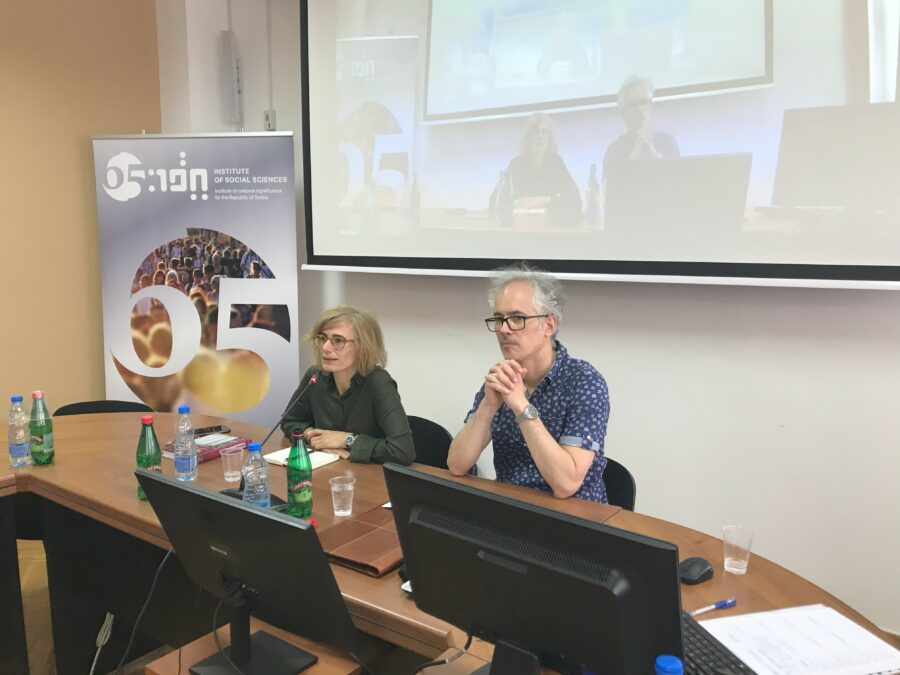Starting from the concept of solidarity of the German sociologist Heinz Bude, who traces back the challenges and role of solidarity in contemporary Western countries, Edvin Pezo’s lecture ” The decline of solidarity in Yugoslavia: The League of Communists of Yugoslavia as a messenger of socio-political changes ” was dedicated to the question of solidarity in Yugoslav society.
The lecture had its focus on the 1960s when, after the initial post-war economic boom, the Yugoslav communist party began to face first serious crises, internal political rivalries and the call and necessity of reforms. As a consequence the political elites of Yugoslavia were forced to reconsider the dominant perception and definition of solidarity (brotherhood and unity) and its compatibility with the new economic and political challenges and the Yugoslav social development.
These radical changes, which also affected the understanding of solidarity, had a direct impact on the development of new dynamics in inter- and inter-republic relations, Pezo assessed, because the changes did not only lead to further economic development, but also created new winners and losers, economic differences between republics, and thereby marked the beginning of the struggle over the distribution of the increasing welfare.
At the end of the observed period, solidarity was less and less seen through a single lens, leading to increasingly diverging views on how to resolve the crisis, and the League of Communist, losing its authority among citizens in this regard, had less and less a cohesive political function.
The lecture took place on 4 June, 2024 as part of the cycle Regional tea party “Yugoslavia”, organized by the Academic Network for Cooperation in Southeast Europe in collaboration with the Institute of Social Sciences.

